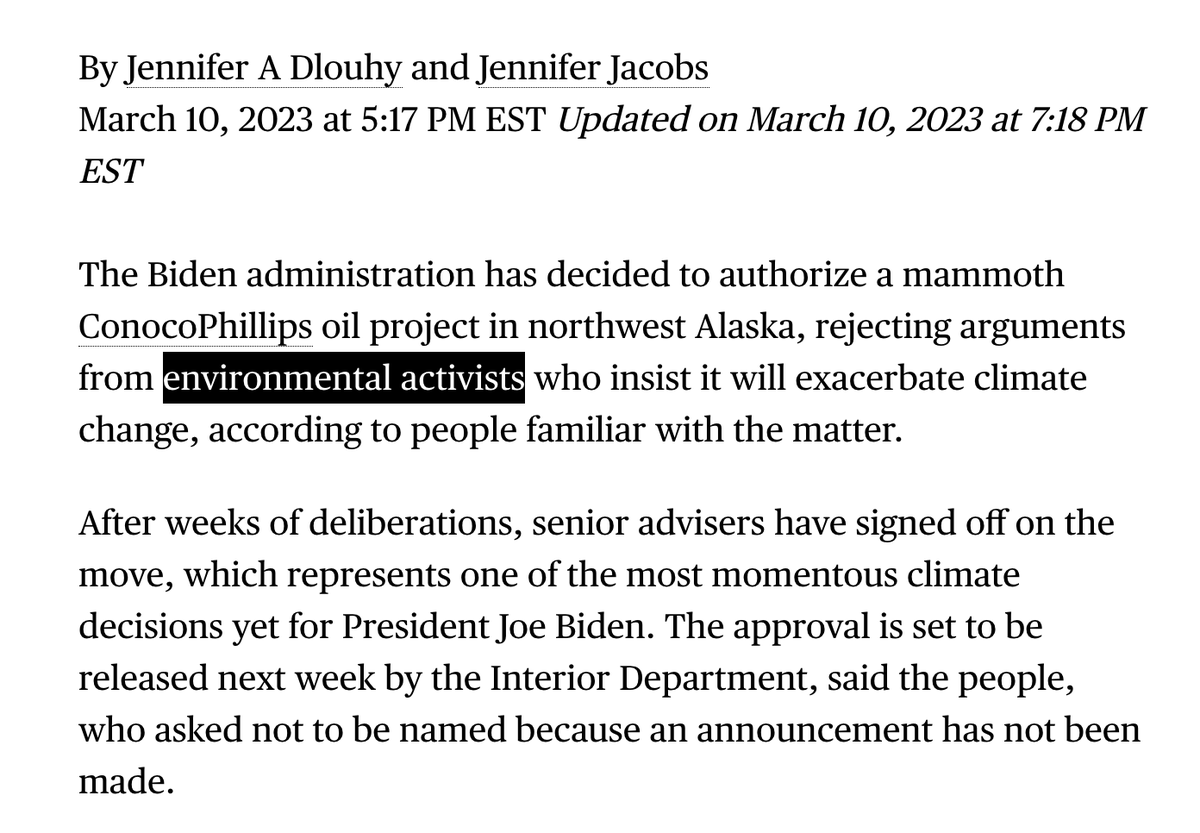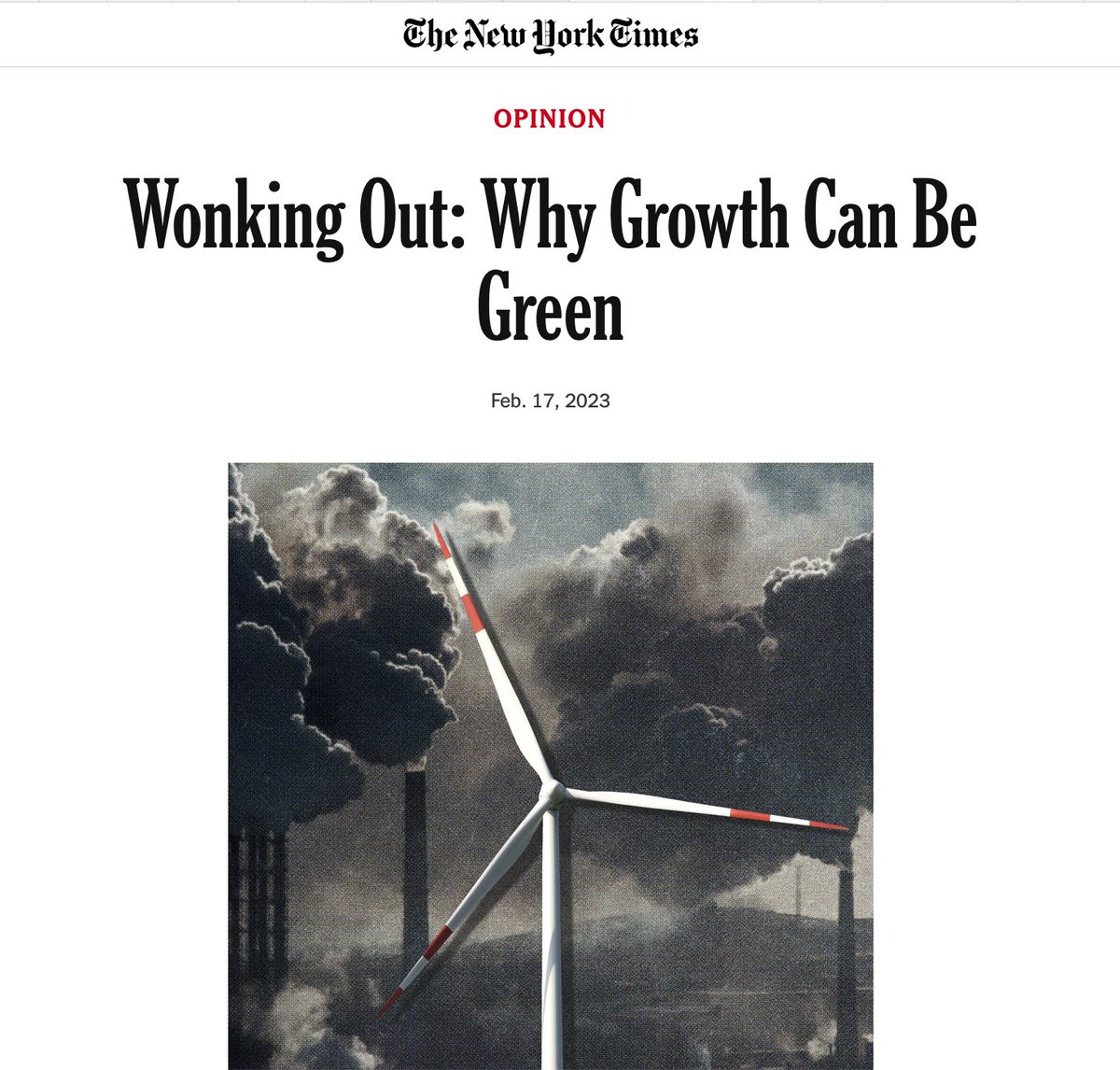
I am just appalled by the media coverage of @POTUS's decision to approve the Willow oil drills in Alaska.
WHY is the framing "Biden vs the activists," when even the @IEA says that meeting the 1.5C target of the #ParisAgreement requires no new fossil energy development?
THREAD
WHY is the framing "Biden vs the activists," when even the @IEA says that meeting the 1.5C target of the #ParisAgreement requires no new fossil energy development?
THREAD
https://twitter.com/jendlouhyhc/status/1634322921651929088
First we have @jendlouhyhc @JenniferJJacobs, who broke the story, reporting that it's only "environmental activists" who "insist [Willow] will exacerbate climate change."
This is anti-science, verging on misinformation.
2/n
This is anti-science, verging on misinformation.
2/n

I searched the entire story for any mention of the Paris Agreement, the IPCC, or the IEA. But I searched in vain.
These global institutions were never mentioned.
Story here 👇
3/n
bloomberg.com/news/articles/…
These global institutions were never mentioned.
Story here 👇
3/n
bloomberg.com/news/articles/…
Then @LFFriedman, who reported the story for @nytclimate next, also engaged the "activists vs Biden administration frame."
4/n
4/n

She at least mentioned the IEA, but only as context for what "environmental activists ... have argued," and this sentence suggests that the IEA was warning governments away only from the "most catastrophic impacts of climate change," some extreme outcome, when in fact...
5/n
5/n

...the IEA has said that nations must stop permitting new fossil energy projects in order to meet the 1.5C target of the Paris Agreement, the very mainstream, global agreement that @POTUS recommitted the entire US when he took office.
iea.org/news/pathway-t…
6/n
iea.org/news/pathway-t…
6/n

This is not just about @POTUS letting down "activists" and "young people," this is about the US not honoring its international commitments and undermining @ClimateEnvoy's credibility among nations.
7/n
7/n
#ClimateChange is not an "environmentalist" cause. It's an extremely serious global problem that all nations have nominally committed to solve by 2050. Let's treat it as such.
/fin
/fin
• • •
Missing some Tweet in this thread? You can try to
force a refresh











